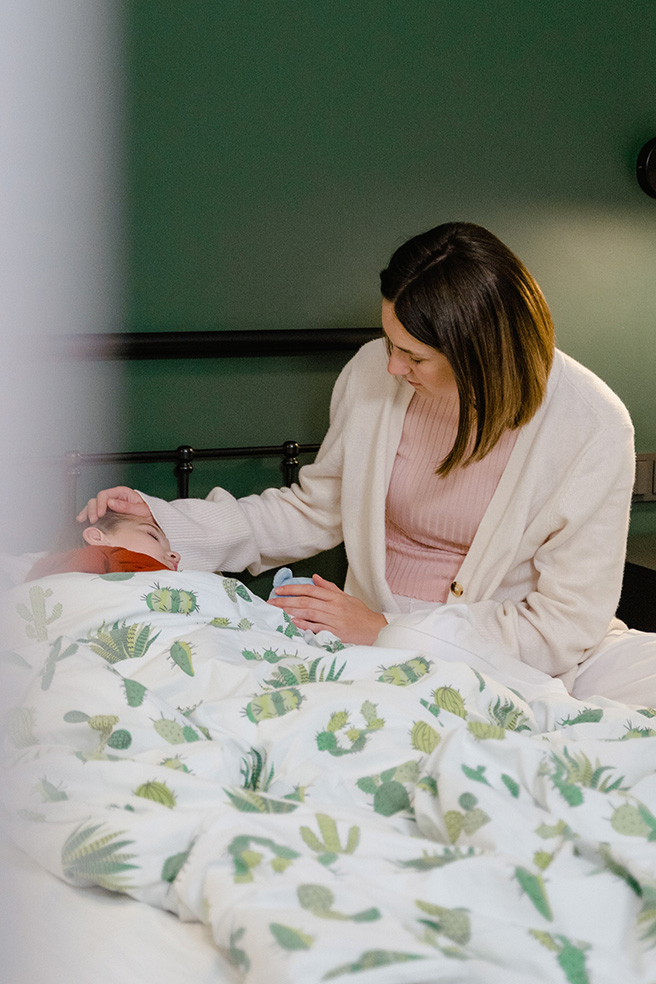Urgent Care
Diagnosis, treatment, and services for your everyday medical needs such as flu shots and lab work.

As bad as breaking a bone or burning yourself can be, most consider infections to be worse due to their ability to spread and potentially come back again. Children are some of the most vulnerable people to contracting a virus because they typically have worse hygiene habits and are less knowledgeable of the signs and symptoms. Cellulitis is definitely one of those bacterial infections to watch out for because if left untreated it can lead to more serious issues.
Cellulitis is a deep bacterial infection of the skin that usually occurs after some type of trauma causes an opening in your child’s skin. Typically, the infection involves your child’s face, arms, and legs. In most cases, human or animal bites or injuries that occur in water can also cause infection and immediate treatment can help prevent the spread of cellulitis. In some cases, cellulitis is considered an emergency and your child’s healthcare provider may treat your child in the hospital depending on the severity of their condition.
Cellulitis is a tricky infection because many of the symptoms may appear as something less significant. If your child has swollen or warm skin, bruising, chills, a fever, or a red streak from the original site of pain, there is a good chance they have cellulitis. In some cases, cellulitis is considered an emergency and you should consult your child’s healthcare provider if the area affected is causing your child to complain of numbness, tingling, or other changes in a hand, arm, leg, or foot, if the skin appears black, or if the area that is red and swollen is around your child’s eyes or behind the ears.
The diagnosis of cellulitis is usually based on the medical history and physical examination of your child. Blood and skin samples may also be taken to confirm the diagnosis and the type of bacteria present.
Specific treatment for cellulitis will be determined by your child’s healthcare provider based on your child’s age, overall health, and medical history. However, treatment may include oral or intravenous antibiotics, warm, wet dressings on the infection site, surgical intervention, and rest.
If your child’s arm or leg is affected, their provider may also have you elevate the extremity and decrease the amount of activity. Also, based on the physical examination, your child’s physician may treat your child in the hospital depending on the severity of the cellulitis. In the hospital, your child may receive antibiotics and fluids through an intravenous catheter.
Complications can be reduced with prompt and accurate treatment by your child’s provider. The most common complications include meningitis, septic arthritis, and an infection of a joint caused by glomerulonephritis.
To prevent cellulitis, protect the skin from cuts, bruises, and scrapes. This isn’t easy, especially for active kids or those who play sports. It’s best if your child uses elbow and knee pads, wears a bike helmet when riding, shin guards, long pants, long-sleeved shirts while hiking in the woods, and sandals on the beach.
If your child does get a cut or scrape, wash it well with soap and water followed by applying an antibiotic ointment, then cover the wound with an adhesive bandage or gauze and lastly, check the wounds often for the first few days to see if any signs of cellulitis begin.
You should contact your provider if any area of your child’s skin becomes red, warm, and painful — with or without fever and chills. This is even more important if the area is on the hands, feet, or face, or if your child has an illness or condition that suppresses the immune system. Also, if your child gets a large cut or a deep puncture wound but most importantly if an animal bites your child, especially if the puncture wound is deep, contact your provider immediately. Cellulitis can happen quickly after an animal bite. Even human bites can cause skin infections too, so call the doctor if this happens.
To recap, cellulitis is a bacterial infection of the skin that often happens in areas where the skin is broken. Because of this, it’s important that your child always washes their hands before and after touching the infected area to make sure it doesn’t get any worse. With that being said, there are only so many at-home options at your disposal which is why Chai Care will always be here to offer top-notch aid!
* Legal disclaimer: The content of this article and the entire Chai Care blog is for educational purposes only; it does NOT constitute medical advice and must not be considered as such. Please consult a medical professional regarding any symptoms or health concerns you or your loved ones.